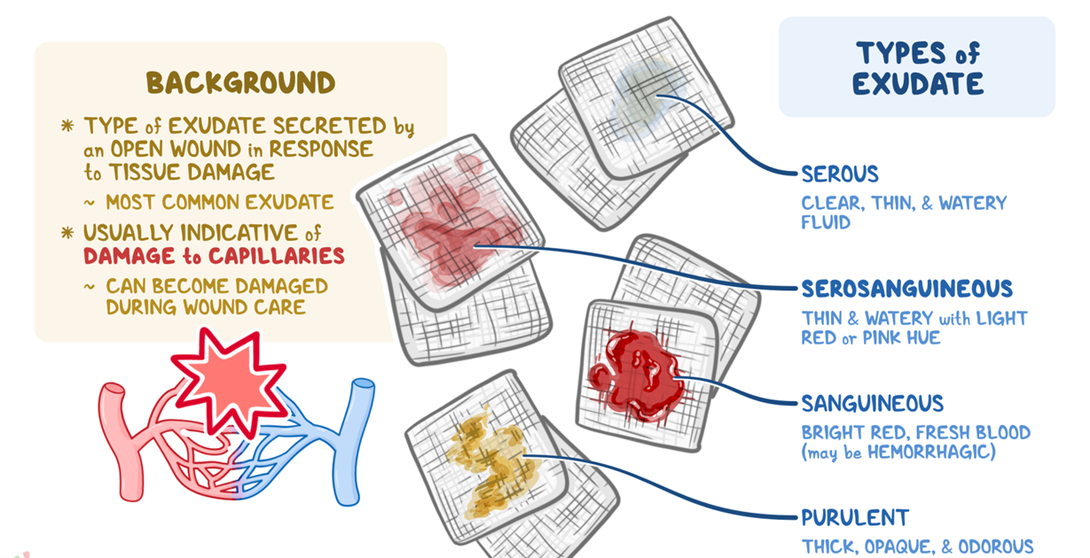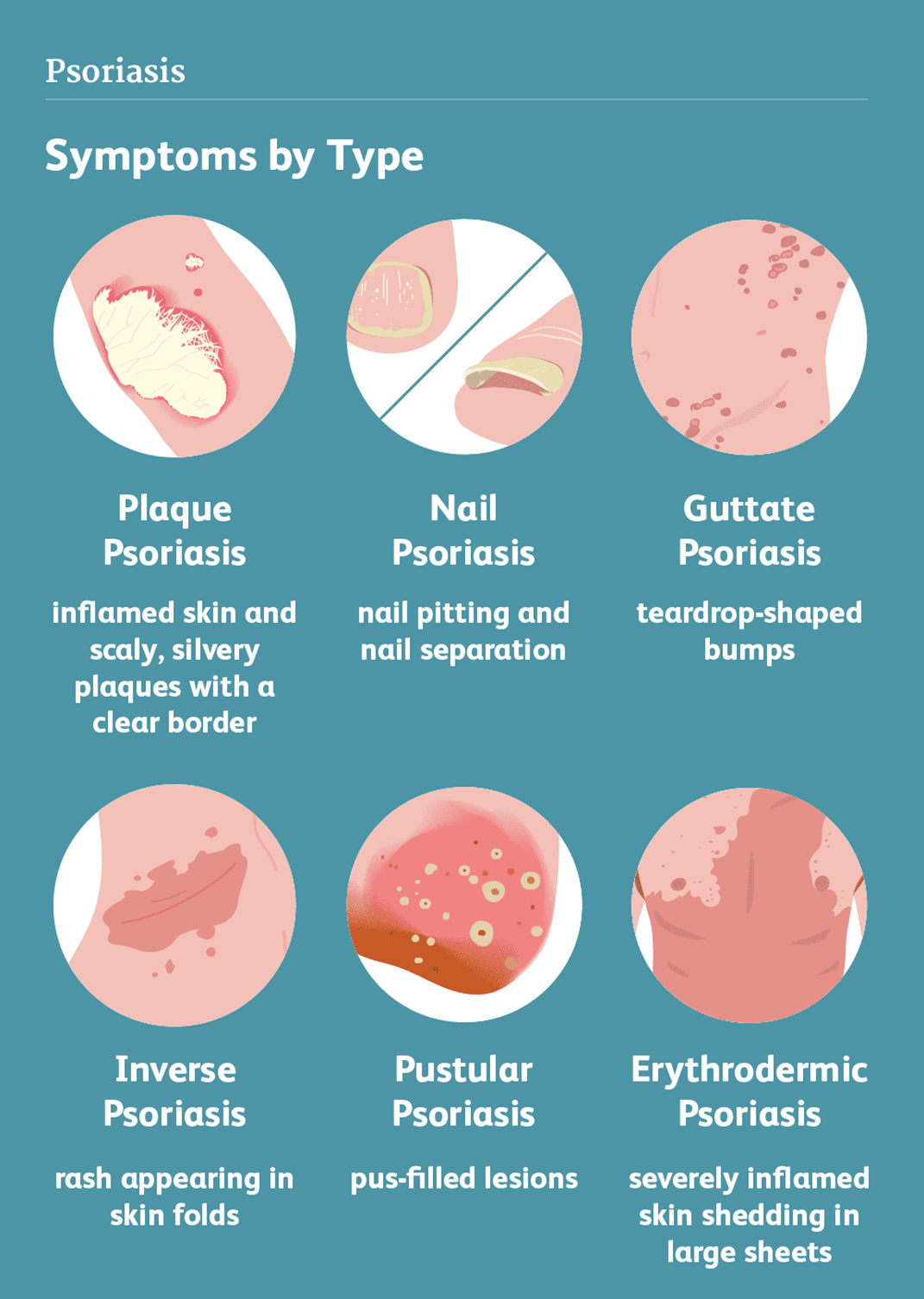A wound has a bloodtinged liquid that is dripping from the surgical site. How does the nurse document this finding?
Purulent exudate
Serous exudate
Serosanguineous exudate
Sanguineous exudate
The Correct Answer is C
Choice A reason: Purulent exudate is a thick, yellowgreen, or brown pus that indicates infection. It is not bloodtinged and does not drip from the wound.
Choice B reason: Serous exudate is a clear, thin, and watery fluid that is normal in the inflammatory stage of wound healing. It does not contain blood cells and is not red in color.
Choice C reason: Serosanguineous exudate is a pink or red fluid that contains both serum and blood. It is common in the proliferative stage of wound healing and may drip from the wound due to increased capillary permeability.
Choice D reason: Sanguineous exudate is a bright or dark red fluid that consists mostly of blood. It indicates active bleeding and is usually seen in traumatic or surgical wounds. It is not diluted with serum and is more viscous than serosanguineous exudate.

Nursing Test Bank
Naxlex Comprehensive Predictor Exams
Related Questions
Correct Answer is A
Explanation
Choice A reason: Psoriasis is a skin abnormality that causes patches of thick, red skin with silvery scales, usually on the elbows, knees, scalp, lower back, or genitals. Psoriasis is a chronic, inflammatory, autoimmune condition that affects the life cycle of skin cells, causing them to build up rapidly on the surface of the skin. Psoriasis can cause itching, burning, pain, or bleeding.

Choice B reason: Rosacea is a skin abnormality that causes redness, flushing, swelling, or pimples, usually on the face, especially the cheeks, nose, chin, or forehead. Rosacea is a chronic, inflammatory, vascular condition that affects the blood vessels and sebaceous glands of the skin. Rosacea can cause sensitivity, stinging, or dryness.
Choice C reason: Scabies is a skin abnormality that causes small, red bumps, blisters, or burrows, usually on the hands, wrists, feet, ankles, or genitals. Scabies is a contagious, parasitic infection that is caused by tiny mites that burrow into the skin and lay eggs. Scabies can cause intense itching, especially at night.
Choice D reason: Stasis dermatitis is a skin abnormality that causes swelling, redness, scaling, or ulcers, usually on the lower legs or ankles. Stasis dermatitis is a chronic, inflammatory condition that results from poor blood circulation in the veins of the legs, causing fluid to leak into the surrounding tissues. Stasis dermatitis can cause pain, itching, or infection.
Correct Answer is D
Explanation
Choice A reason: Postponing daily bed bath is not appropriate for reducing the risk of a friction and shear injury. Bed bath is a hygiene measure that helps to keep the skin clean and dry and prevent infection. Friction and shear are caused by the rubbing and pulling of the skin against the bed surface, not by the bed bath itself.
Choice B reason: Elevating the client’s head of the bed to 45 degrees is not appropriate for reducing the risk of a friction and shear injury. In fact, this may increase the risk as the client may slide down the bed due to gravity and cause more friction and shear on the skin. The head of the bed should be kept at the lowest possible angle, preferably less than 30 degrees, unless contraindicated by the client’s condition.
Choice C reason: Caregiver independently slides the client up in bed is not appropriate for reducing the risk of a friction and shear injury. This may cause more damage to the skin as the caregiver may exert excessive force and drag the client’s skin along the bed surface. The caregiver should use a draw sheet or a slide board to lift and reposition the client with the help of another person.
Choice D reason: Use a mechanical lift to reposition the client every 2 hours is the most appropriate intervention for reducing the risk of a friction and shear injury. A mechanical lift is a device that helps to transfer and reposition the client safely and comfortably. It reduces the friction and shear on the skin by lifting the client off the bed surface and avoiding any sliding or dragging. It also prevents the caregiver from injuring themselves by lifting the client manually. The client should be repositioned every 2 hours to relieve the pressure on the skin and prevent pressure ulcers.
Whether you are a student looking to ace your exams or a practicing nurse seeking to enhance your expertise , our nursing education contents will empower you with the confidence and competence to make a difference in the lives of patients and become a respected leader in the healthcare field.
Visit Naxlex, invest in your future and unlock endless possibilities with our unparalleled nursing education contents today
Report Wrong Answer on the Current Question
Do you disagree with the answer? If yes, what is your expected answer? Explain.
Kindly be descriptive with the issue you are facing.
